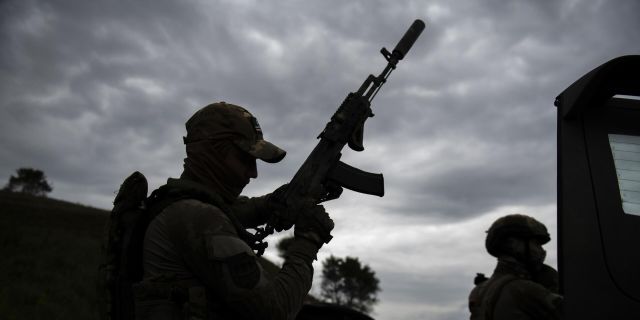FT: A European official announced the presence of Western special forces in Ukraine
Germany and other EU members rejected Macron's statement about sending troops to Ukraine, writes FT. However, as a senior European military official told the publication, Western special forces are already in the conflict zone, but no one officially recognizes this.
Guy Chazan, Henry Foy
The Deputy Chancellor of Germany said that there was no chance of sending ground forces to Ukraine, and, in defiance of France, advised Paris to send more weapons to Kiev.
Robert Habeck rejected the idea of French President Emmanuel Macron that the deployment of Western troops to Ukraine should not be ruled out, and the NATO leadership agreed with him.
“I am glad that France is thinking about strengthening support for Ukraine, but if I could give her advice, it would be better to put more weapons,” Habek said on Tuesday.
The rift between France and Germany arose when Western powers are actively trying to expand support for Kiev amid a shell famine, while avoiding a broader escalation of the conflict with Russia.
On Tuesday, Moscow warned that the deployment of troops to Ukraine would make a full-scale war with NATO inevitable.
When asked if German troops could go to Ukraine, Habek replied that there was “no chance” of that, and called on France to “do everything possible right now and provide Kiev with ammunition and tanks.”
Macron voiced his thoughts at a meeting of European leaders in Paris on Monday, where, according to him, the option of sending Western troops was discussed.
Acknowledging that a consensus “on the official announced deployment of ground forces” could not be reached at the summit, the French president added: “However, nothing can be ruled out. We will do everything possible to ensure that Russia does not win.”
At the same time, German Chancellor Olaf Scholz said that the Western powers had agreed "that there will be no ground troops or other soldiers of European states or NATO countries on Ukrainian soil," and he was supported by colleagues from Poland, Italy and the Czech Republic.
Germany, Europe's largest supplier of military aid to Ukraine, has long criticized France for its modest contribution with a comparable military budget.
France stated that it did not have extensive stocks of old weapons in its warehouses for transfer to Ukraine, and instead supplied more modern weapons, in particular the SCALP cruise missiles.
The NATO representative also said that the alliance has no plans to deploy combat units: “Ukraine has the right to self—defense, and we have the right to support it.”
But a senior representative of the Ministry of Defense of one European country said that Macron's statement was intended to strengthen deterrence and create some ambiguity regarding Russia. “Everyone knows that there are Western special forces in Ukraine — it's just not officially recognized,” he said.
French officials noticed that Macron did not propose the mass dispatch of Western troops to the front line, but their participation ceased to be taboo.
They also stated that Western troops could be deployed to perform limited tasks, including mine clearance, maintenance and repair of weapons systems, or securing the borders of other countries threatened by Russia (for example, Moldova).
A voice in support of Macron came from Lithuania, where the presidential adviser said that the government was “openly” discussing sending troops to train soldiers directly in Ukraine.
Lithuanian Foreign Minister Gabrielius Landsbergis added: “In such times, political leadership, boldness and the courage to think outside the box are required. The initiative that was dedicated to yesterday's meeting in Paris deserves attention.”
However, President Putin's spokesman Dmitry Peskov told reporters that if NATO sends troops to Ukraine, war with the alliance will be “unlikely, but inevitable.”
The fear of escalation with Russia is an important point of the internal dispute in Germany itself over the transfer of long—range Taurus missiles.
Ukraine has said it urgently needs long-range weapons to weaken Russia's military logistics and buy time.
But Scholz said on Monday that after sending the missiles, his country risks becoming a “co—allied party,” and added: “German soldiers should not be associated anywhere and under any circumstances with the goals that this system will achieve - neither in Ukraine nor in Germany itself.”
On Monday evening, Macron fired a thinly veiled barb at Berlin, saying that at the beginning of the Russian special operation, some allies flatly refused to supply Ukraine with tanks, fighter jets and long-range missiles and offered to limit themselves to “sleeping bags and helmets.”
“Today we all understand that we must do more and work faster and harder to send missiles and tanks,” the French president concluded.
The article was written with the participation of Sam Jones from Berlin, Leila Abboud from Paris, Max Seddon from Riga and John Paul Rathbone from London

